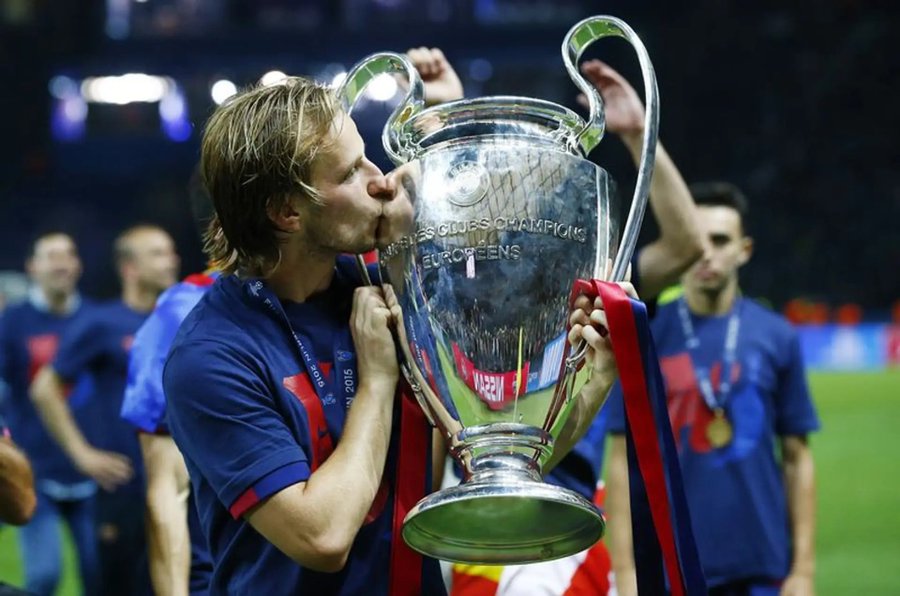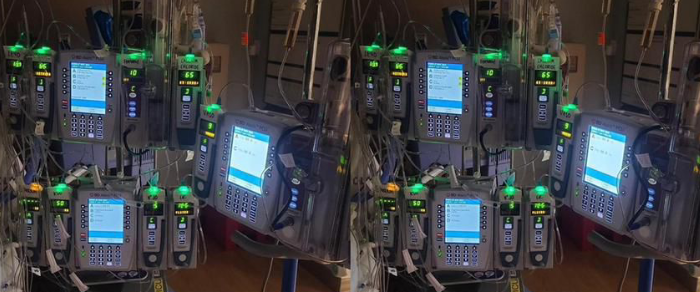

Iván Rakitić, the elegant Croatian playmaker who wove passing tapestries for FC Barcelona, Sevilla and his national team for nearly two decades, has officially hung up his boots at the age of 37, ending one of the most decorated and relentlessly consistent midfield journeys of modern European football. The news was broken in trademark fashion by transfer insider Fabrizio Romano and swiftly confirmed by Rakitić himself in an emotional Instagram letter that thanked “the game that gave me a life in full colour.”
The announcement arrived just after dawn on Monday, 7 July 2025, but its shock waves rippled across dressing rooms from Split to Seville in minutes. Within an hour, FC Barcelona released a statement saluting the man who once scored in a Champions League final, calling him “a conductor who turned pressing chaos into symphonic calm.” Sevilla, where Rakitić twice lifted the Europa League and once wore the captain’s armband, illuminated the Ramón Sánchez-Pizjuán façade in Croatia’s red-and-white checks.
It has been a long road since Basel handed a skinny teenager his debut in 2005. Yet the 887-match ledger Rakitić leaves behind is remarkable for its symmetry: 310 appearances for Barça, 310 for Sevilla across two stints, and 106 caps for Croatia, each punctuated by a trademark outside-of-the-boot diagonal capable of turning fate on a pivot. Along the way came 17 major trophies—most loudly the 2015 Champions League triumph in Berlin, where his fourth-minute opener against Juventus set Luis Enrique’s side on course for the treble.
Barcelona’s midfield of Sergio Busquets, Andrés Iniesta and Rakitić often felt like a relay of soft-shoe passes; critics who feared the Swiss-born Croat would merely fill Xavi’s boots soon discovered he wore a different cut entirely. His energy liberated Iniesta to float, shielded the defence when Lionel Messi darted in-field, and, crucially, added a long-range goal threat. From 2014 to 2020 he completed more kilometres than any outfield Barça player, yet rarely registered below 90 percent pass accuracy on the biggest stages.
Croatia, however, is where the heartstrings tighten. In Moscow’s Luzhniki Stadium on 15 July 2018, Rakitić walked the full 120 metres to take the decisive penalty against Russia in a World Cup quarter-final, then repeated the trick against Denmark in the same tournament. Those ice-veined strolls symbolised a generation that would carry the tiny Adriatic nation all the way to the final, and they etched his grin into Balkan folklore. “He was our metronome, our nerve,” Zlatko Dalić reflected on Monday.
The final chapters were written far from the Camp Nou’s cathedral roar. After COVID-delayed seasons, a sentimental return to Sevilla in 2020, and the lure of Saudi Pro League riches at Al-Shabab in 2024, Rakitić accepted a brief homecoming at Hajduk Split to be closer to family. Reports suggest the decision to retire crystallised last month when persistent ankle discomfort refused to yield to treatment. The midfielder opted against surgery, determined to leave with ankles—and legacy—intact.
Numbers only hint at what disappears when a player like Rakitić walks off-stage. Teammates praise his polyglot dressing-room diplomacy—he speaks five languages—and his habit of designing tactical tweaks on hotel napkins. Julen Lopetegui once revealed he would often hand the half-time whiteboard to Rakitić “because the lads believed him like scripture.” That intellectual streak earned him UEFA’s 2019 Footballer for Good award after he used his image rights earnings to fund youth academies in Croatia and Catalonia.
The tributes on social media were immediate and global. Lionel Messi posted a photo of the pair embracing in Berlin with the caption “The run that never ended,” while Luka Modrić called him “my brother in stripes and in dreams.” Even Real Madrid’s official account tipped its hat with a simple “Respect,” an honour rarely afforded a Blaugrana icon. Fabrizio Romano’s original retirement tweet surpassed one million likes in three hours, proof that football’s partisan borders blur when a craftsman lays down his tools.
Financially secure and with marketing offers piling up—Sevilla fans have already crashed the club shop site ordering commemorative No. 7 jerseys—Rakitić insists the next step is “a deep breath.” Friends suggest he may study coaching in Zagreb or even return to Basel to mentor academy prospects. There is also talk of a memoir; publishers eye a bestseller in the story of a Swiss-Croat who became a Catalan hero and a Balkan warrior all at once. “But first,” Rakitić told ESPN, “I want school runs with my daughters and a coffee I can finish while it’s still hot.”
The timing of his goodbye feels symbolically neat. Exactly ten years ago this week, Rakitić was parading the Champions League trophy down Barcelona’s Passeig de Gràcia; now he bows out with the Copa América and Euro 2024 fresh in collective memory, bookending an era many argue was midfield’s golden decade. Without him, the tiki-taka diaspora loses one of its last pure interpreters.
Yet football rarely stays silent for long. Already, pundits debate whether his 52-goal haul for Barcelona places him among the club’s top ten midfielders, or if his Europa League heroics in 2014—he captained Sevilla to victory, claimed man of the match, and married his wife Raquel the next day—deserve a Netflix documentary. The consensus: legacy is measured not merely in medals but in memories, and Rakitić has given supporters a treasury.
What cannot be debated is the manner of his exit—deliberate, dignified, and framed in gratitude. “Football, you gave me more than I dreamed,” he wrote, echoing Andrés Iniesta’s farewell a generation earlier. The line may read like routine platitude, but those who watched him kiss his boots before every kick-off know the ritual was a devotional act, a promise to honour the game’s gift.
While Barcelona’s board ponders a testimonial match and Croatia’s federation considers a permanent coaching role, Rakitić will wake tomorrow not to pre-dawn stretching sessions but to an open calendar. Football’s incessant drum will march on without him, but the tempo will change—slightly, almost imperceptibly—because the conductor who so often decided when to accelerate or decelerate has set down the baton.
In an era that sometimes confuses spectacle with substance, Ivan Rakitić excelled at both, producing moments worthy of highlight reels while performing the hidden labours that knit trophies together. His retirement draws the curtain on a career that taught a simple lesson: artistry and industry need not be rivals—they can coexist in a single right boot scuffed by 887 games and still capable, in one final Instagram flourish, of stopping time. Monday’s farewell may mark the end of his playing notes, but the echo of his rhythm will linger in every midfield that yearns for balance, bravery, and a pass that splits more than just defenders—it splits eras.


